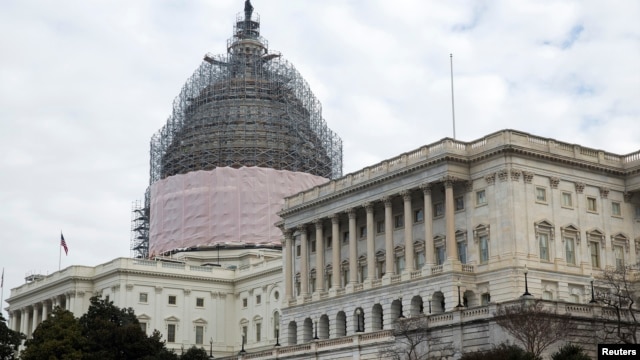 Democrats acknowledged on Tuesday that it will be difficult, and likely impossible, to match the nearly $900 million that the conservative billionaire Koch brothers said their political network will spend during the 2016 campaign cycle.
Democrats acknowledged on Tuesday that it will be difficult, and likely impossible, to match the nearly $900 million that the conservative billionaire Koch brothers said their political network will spend during the 2016 campaign cycle.
The eye-popping figure emerged on Monday as donors met at a Koch-organized winter retreat near Palm Springs, California. It underscored Charles and David Koch’s commitment to push for smaller-government policies via a web of advocacy organizations.
«It’s a staggering amount of money and it’s probably just the beginning,» said Democratic strategist Bill Burton. «The truth is, Democrats will never match what Republicans can put into these races.»
Republicans in 2016 will seek to win the White House after Democratic President Barack Obama’s two terms and try to keep control of the U.S. Congress after winning the Senate in 2014.
«Democrats say they can’t match it but we saw Barack Obama do pretty well with large donors. I think Hillary Clinton will too,» said David Yepsen, director of the Paul Simon Public Policy Institute at Southern Illinois University.
2012 re-election costs
Obama’s successful 2012 re-election campaign cost $1 billion. The eventual Republican and Democratic presidential nominees — widely expected to include former Secretary of State Clinton — will likely raise that much or more in 2016.
Even so, the ability of Koch-backed groups to spend $889 million raised from several hundred well-heeled donors puts the brothers’ influence on par with the national political parties themselves.
«It’s almost as if these folks are creating their own third political party,» said former Ohio Governor Ted Strickland, a Democrat. Strickland is now president of the Center for American Progress Action Fund, a progressive advocacy organization.
During the 2012 presidential election cycle, the Republican National Committee and committees devoted to Senate and House candidates collectively raised about $682 million, compared to $646 million raised by Democratic groups, according to government data compiled by the Center for Responsive Politics.
Democrats will be hard pressed to find wealthy donors with pockets deep enough to match the Koch-coordinated effort. The figure announced on Monday dwarfs, for example, the $74 million spent by California billionaire and green activist Tom Steyer on the 2014 congressional elections. Steyer has not announced his 2016 plans.
‘Good economics’
Bobby Whithorne, spokesman for Steyer’s NextGen Climate organization, said «spending around a billion dollars to make sure that the few continue to disproportionately benefit at the expense of the many is simply good economics for them,» referring to the Kochs.
The Democracy Alliance, a network of wealthy individuals that has tried to counter past Koch efforts said it expected contributions by donors to exceed all previous contribution records, which it does not disclose.
But whether progressive donors are willing to match the Kochs is the “wrong question” given that «we are working harder than ever to end the electoral arms race so that we can preserve a democracy that is not bought by a handful of rich people and corporations,» Democracy Alliance President Gara LaMarche said.
Campaign finance experts said the $889 million will allow the Koch network to assume the role of a de facto political party. But there are major differences in the way it will be able to raise and spend more money than political parties.
Contributions to candidates and national political parties from individual donors are capped at $2,600 and $32,400 respectively, but wealthy donors in the Koch network will be able to write checks to Koch-affiliated organizations in any amount because under U.S. law most Koch groups are not traditional political fundraising organizations but nonprofit advocacy groups, experts said.
Such groups, which exist on both sides of the political spectrum, are limited only in that they cannot coordinate directly with candidates and political parties and their primary purpose must be advocacy, not electioneering. But the two can be nearly indistinguishable in practice, said David Donnelly, president of Every Voice, a campaign finance reform group.
«They can spend money on about anything a candidate or party can spend money on, but just don’t have to disclose it,» Donnelly said.
http://www.voanews.com/content/democrats-daunted-by-conservative-groups-900-million-for-2016-campaign/2616615.html


